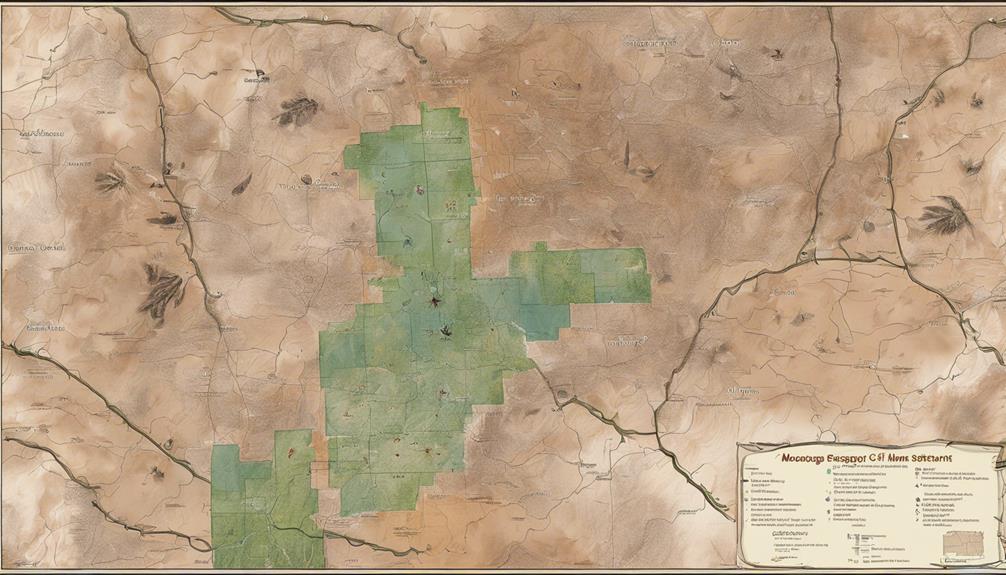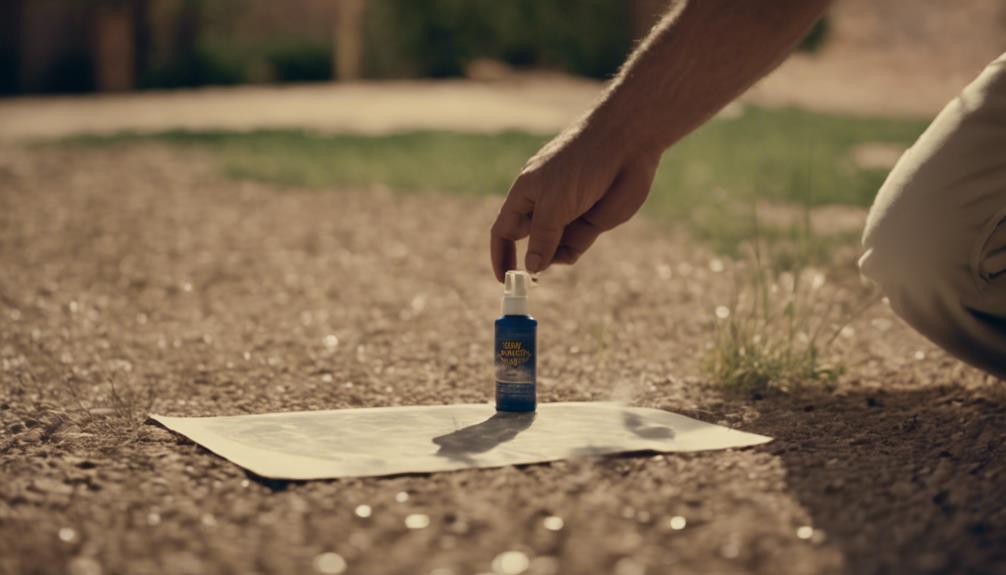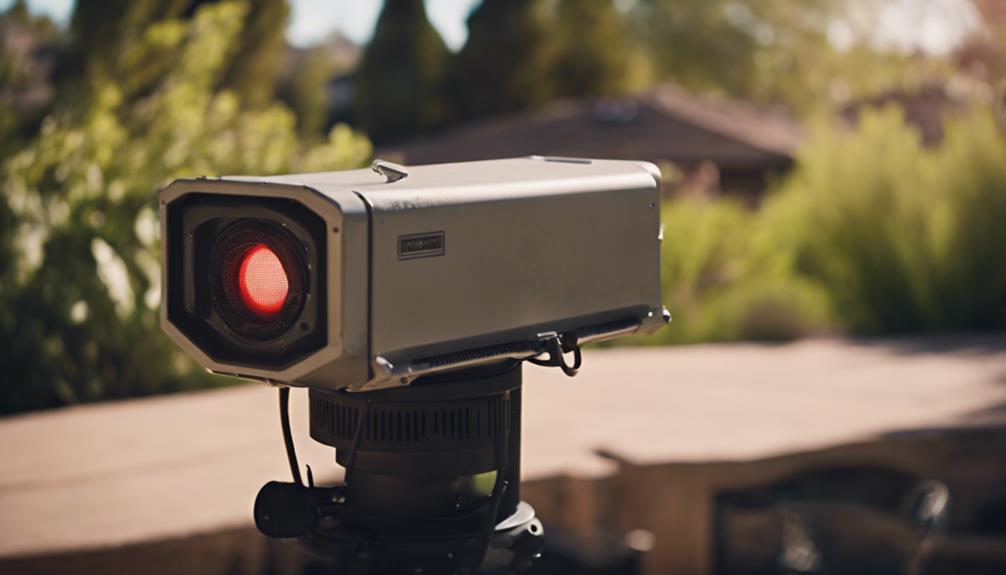Guarantee compliance with strict mosquito control laws and regulations in St. George, Utah. The Southwest Mosquito Abatement District, established in 2002, focuses on health enhancement through safe, effective, and economical methods. Laws govern pesticide use for mosquito control, with enforcement measures in place. Public health concerns drive surveillance and reporting, targeting diseases like West Nile virus and Zika. Compliance requirements and enforcement measures ensure safety and environmental efficacy. Adhere to regulations, eliminate standing water sources, and report infestations promptly for effective management. Prioritize public health and safety through proactive mosquito control measures. Discover more about regulations impacting mosquito control in St. George.
Key Takeaways
- Regulations prioritize safe, cost-effective mosquito control methods.
- Laws mandate proper pesticide training and compliance for health and environment safety.
- Compliance with regulations crucial to prevent disease outbreaks.
- Surveillance and reporting systems in place for effective control measures.
- Residents must adhere to compliance requirements to avoid fines or legal actions.
Overview of Mosquito Control Laws

The Southwest Mosquito Abatement District, established on December 6, 2002, governs the mosquito control laws in St. George, Utah with a focused approach on health enhancement through safe, effective, and economical methods. This Control District’s primary mission revolves around disease prevention, research, and environmental protection in their mosquito abatement efforts. By prioritizing these aspects, the district aims to guarantee that mosquito-related issues are addressed promptly and effectively to safeguard public health.
The Control District in St. George also deals with nuisance regulations that may arise due to mosquito infestations posing a threat to public health. Enforcement of these mosquito control laws is critical, as violators of nuisance regulations may face fines or legal actions. By implementing and enforcing these regulations, the district plays an essential role in minimizing the risks associated with mosquitoes and the diseases they may carry. Overall, the Control District’s efforts are crucial in maintaining a safe and healthy environment for the community.
Legislation Impacting Mosquito Control
In St. George, Utah, legislation impacting mosquito control encompasses laws regulating pesticide use, public health concerns, and surveillance/reporting protocols.
These laws aim to mitigate the risks associated with mosquito-borne diseases by enforcing strict guidelines on pest management practices.
The focus is on maintaining public health through proactive measures that target mosquito breeding sites and prevent the proliferation of disease-carrying vectors.
Laws on Pesticide Use
Pesticide regulations in St. George, Utah meticulously govern the application of chemicals for controlling mosquito populations to guarantee safety and environmental efficacy. For mosquito abatement purposes, laws mandate proper training and certification for individuals applying pesticides.
Specific guidelines are in place for the storage, handling, and disposal of these chemicals to ensure compliance with safety standards. Adherence to these regulations is essential to minimize potential risks to human health, non-target organisms, and the surrounding environment.
Public Health Concerns
Frequently addressing public health concerns, legislation in St. George, Utah actively regulates mosquito control measures to combat the spread of diseases like West Nile virus and Zika. The laws in place aim to prevent outbreaks by enforcing proactive mosquito abatement strategies. Public health agencies collaborate with local authorities to guarantee the implementation of these regulations, emphasizing the importance of community-wide efforts in mosquito control.
Surveillance and Reporting
Conducting routine inspections by city officials enables the surveillance of mosquito control in St. George, Utah. Legislation mandates reporting of mosquito breeding sites and infestations to the Southwest Mosquito Abatement Control District. This reporting system is essential for tracking and managing mosquito populations effectively.
Residents play an important role in this process by reporting any mosquito nuisance or breeding areas promptly to the designated hotline. The Southwest Mosquito Abatement Control District utilizes surveillance data to target specific mosquito populations and implement tailored control measures.
Compliance with reporting requirements is necessary for the successful prevention of mosquito-borne diseases in St. George, Utah. By working together and staying vigilant, the community can contribute significantly to the overall effectiveness of mosquito control efforts.
Regulations on Mosquito Abatement
In St. George, Utah, the Southwest Mosquito Abatement District rigorously enforces regulations aimed at implementing safe, cost-effective, and environmentally conscious mosquito control measures. The regulations put in place by the District are designed to combat mosquito populations effectively while ensuring the well-being of the community and the environment.
- The District focuses on utilizing safe and environmentally friendly methods for mosquito control.
- Regulations prioritize cost-effective strategies to manage mosquito populations efficiently.
- Emphasis is placed on the importance of public health and safety in implementing mosquito abatement measures.
- The District continuously evaluates and updates its regulations to align with the latest scientific research and technological advancements.
- Violators of these regulations may face fines or legal consequences from city authorities, underscoring the seriousness of maintaining compliance with mosquito abatement laws in St. George, Utah.
Compliance Requirements for Residents

Residents in St. George, Utah must adhere to strict compliance requirements outlined in the mosquito control laws to mitigate the risk of mosquito-borne diseases. As part of the mosquito abatement efforts, residents are mandated to eliminate standing water sources on their properties. This action is essential as stagnant water serves as a primary breeding ground for mosquitoes. Additionally, following guidelines for the proper disposal of waste and maintaining yards in a manner that discourages mosquito populations are crucial steps in reducing the prevalence of these disease-carrying insects.
City authorities emphasize the importance of compliance with these regulations, as failure to do so can lead to fines or legal repercussions. Regular inspections conducted by city officials serve as a monitoring mechanism to ensure that residents are meeting the necessary compliance requirements for mosquito control in St. George, Utah. By actively participating in mosquito abatement measures, residents play a key role in safeguarding public health and creating a more mosquito-free environment for the community.
Enforcement Measures for Violations
Enforcing nuisance regulations in St. George, Utah involves issuing citations and imposing fines or legal actions on violators as mandated by city ordinances. When it comes to mosquito abatement, the city takes violations seriously to maintain a healthy environment for all residents. Here are some enforcement measures for violations:
- Regular Inspections: City inspectors are authorized to conduct routine inspections to guarantee compliance with mosquito abatement regulations.
- Community Education: St. George promotes community involvement by educating residents on mosquito prevention methods and the importance of adherence.
- Escalating Penalties: Repeat offenders may face increasing fines or legal actions to discourage non-compliance with nuisance laws.
- Interdepartmental Cooperation: Effective enforcement relies on collaboration between different city departments to address mosquito infestations promptly.
- Prompt Reporting: Residents are encouraged to report mosquito infestations promptly to facilitate swift enforcement actions and control potential outbreaks.
Reporting Procedures for Infestations

To ensure swift and effective management of mosquito infestations in St. George, Utah, proactive reporting to the Southwest Mosquito Abatement District is highly recommended. The district offers multiple reporting channels, including their website, hotline, and online reporting forms, ensuring that residents can easily notify authorities for prompt action. Timely reporting is essential as it enables the district to implement control and prevention measures efficiently. Additionally, anonymous reporting options are available to safeguard the privacy of individuals reporting infestations, encouraging more residents to come forward without any concerns. By utilizing the resources provided by the Mosquito Abatement District, St. George residents play a crucial role in controlling mosquito populations and mitigating the associated risks effectively.
| Reporting Channels | Description | Benefits |
|---|---|---|
| Website | Report infestations online for quick response | Convenient and accessible reporting |
| Hotline | Call the hotline to inform about mosquito issues | Immediate assistance for urgent cases |
| Online Reporting Forms | Fill out forms on the district’s website to provide detailed information on infestations | Helps in targeted and specific actions |
Public Health Implications of Regulations
When considering the public health implications of mosquito control regulations in St. George, Utah, it’s essential to acknowledge the inherent health risks associated with mosquito-borne diseases.
Compliance with these regulations is pivotal as it directly impacts the overall effectiveness of mosquito management strategies and the well-being of the community.
Understanding the importance of regulatory compliance guarantees a proactive approach to mitigating health risks and safeguarding public health.
Health Risks Associated
Mitigating the health risks associated with mosquito-borne diseases is a primary objective of the mosquito control laws implemented in St. George, Utah.
To understand the health risks involved, consider the following:
- Mosquito control laws target diseases like West Nile virus and Zika virus.
- Regulations are designed to minimize public health threats from mosquito-transmitted pathogens.
- Enforcing these laws safeguards the community from potential disease outbreaks.
- Compliance guarantees a healthier environment by controlling mosquito populations.
- Proactive measures under these laws aim to reduce the health risks linked to mosquito bites.
Regulatory Compliance Importance
In understanding the impact of regulatory compliance on public health within St. George, Utah, it’s crucial to recognize the direct correlation between adherence to mosquito control laws and the prevention of disease outbreaks.
Washington County, where St. George is located, faces the risk of mosquito-borne illnesses such as West Nile virus and Zika. By enforcing regulations governing the use of pesticides, larvicides, and other control methods, the community guarantees the safety and well-being of its residents.
Non-compliance with these laws can lead to increased mosquito populations, posing health risks to the public. Hence, the enforcement of mosquito control regulations is essential in maintaining a healthy and mosquito-free environment in St. George, Utah.
Future Developments in Mosquito Control

To further enhance mosquito control efforts in St. George, Utah, a strategic focus on researching innovative methods and technologies is imperative. Future developments in mosquito control in St. George will involve:
- Exploring Genetic Control Methods: Investigating genetic modification techniques to reduce mosquito populations.
- Utilizing Drones for Surveillance: Implementing drone technology for efficient monitoring of mosquito breeding grounds.
- Introducing Larvicide Treatments: Developing targeted larvicide treatments to interrupt the mosquito life cycle.
- Enhancing Public Health Partnerships: Strengthening collaborations with health agencies to improve disease surveillance and response.
- Promoting Community Engagement: Conducting educational programs to increase public awareness about mosquito-borne illnesses and prevention strategies.
These initiatives will contribute to the ongoing efforts of the Southwest Mosquito Abatement District in St. George, Utah, ensuring sustainable and effective mosquito control practices for the well-being of the community.
Frequently Asked Questions
Are There Mosquitos in St George Utah?
Yes, there are mosquitoes in St. George, Utah. To prevent mosquito nuisances, implement proper mosquito prevention measures, like eliminating standing water. Protect yourself from mosquito-borne diseases by following guidelines from the Southwest Mosquito Abatement District.
How Do I File a Noise Complaint in St George Utah?
When noise pollution disrupts your peace in St. George, Utah, swiftly report disturbances through the city’s designated hotline or online platforms. Encourage timely reporting to aid authorities in efficiently resolving noise complaints.
What County Is St George In?
St. George lies within Washington County boundaries, encompassing a vibrant community. Its stunning landscapes and warm climate make it a popular destination. You’ll find a range of activities to enjoy, from outdoor adventures to cultural experiences.
What County Is Washington UT In?
Washington, UT is in Washington County, where the county boundaries align with the Southwest Mosquito Abatement District. This area was established for mosquito control. The legal creation date of this district was December 6, 2002.




